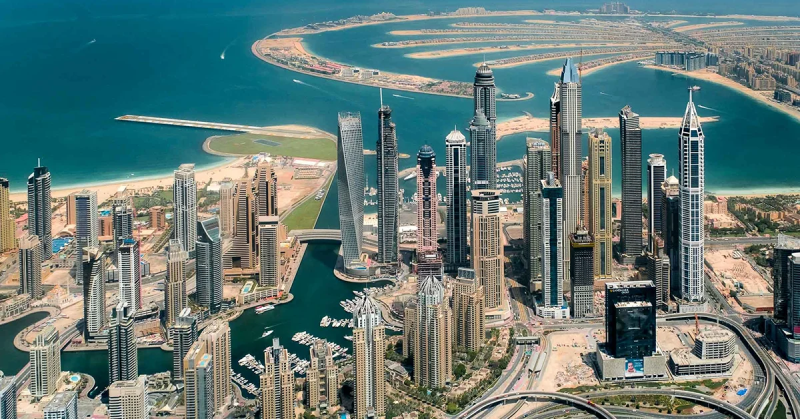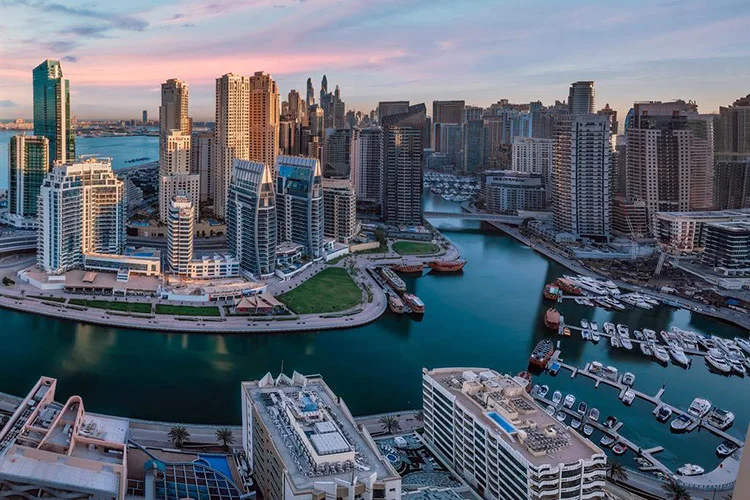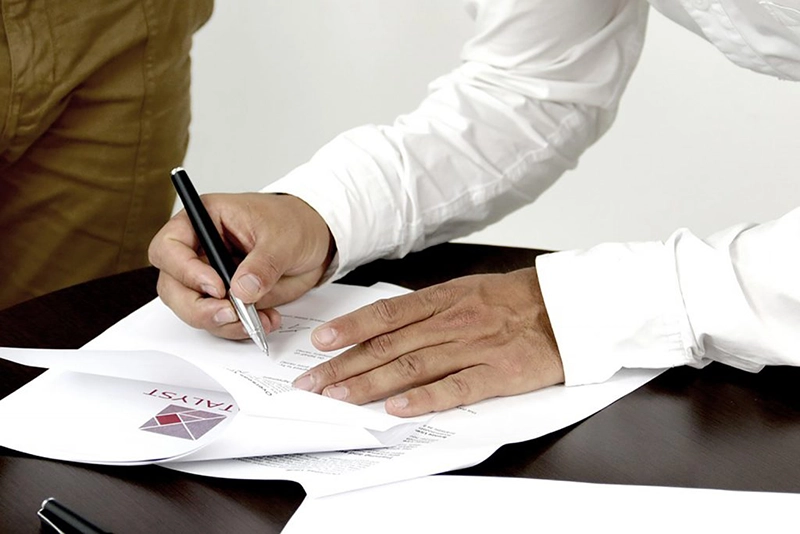
Thinking about investing in real estate? Dubai might be the perfect destination. With its stunning skyline, luxurious lifestyle, and rapid economic growth, Dubai has become a top choice for property buyers worldwide. But is it worth buying a property in Dubai? Let's explore.
Dubai's real estate market is known for its strong capital appreciation and rental yield potential. The city offers a diverse range of properties, from high-rise apartments to beachfront villas, catering to different budgets and preferences. Additionally, Dubai has one of the most transparent and well-regulated property markets in the region, providing investors with confidence and security.
Furthermore, Dubai's strategic location as a global business hub attracts a large expatriate community, resulting in a strong demand for rental properties. This makes the rental market in Dubai highly lucrative, offering investors excellent returns on their investment.
However, it's important to conduct thorough research and seek professional advice before making any investment decisions. Factors such as market conditions, legal requirements, and financing options should be carefully considered.
In conclusion, buying a property in Dubai can be a rewarding investment. With its vibrant economy and thriving real estate market, Dubai offers immense potential for capital growth and attractive rental yields.

Pros and cons of buying property in Dubai
Dubai's real estate market is known for its strong capital appreciation and rental yield potential. The city offers a diverse range of properties, from high-rise apartments to beachfront villas, catering to different budgets and preferences. Additionally, Dubai has one of the most transparent and well-regulated property markets in the region, providing investors with confidence and security.
One of the main advantages of buying property in Dubai is the potential for high returns on investment. The real estate market in Dubai has historically shown strong capital appreciation, with property prices increasing significantly over the years. This makes it an attractive option for investors looking to build wealth through property ownership.
Another advantage is the rental yield potential in Dubai. The city's strategic location as a global business hub attracts a large expatriate community, resulting in a strong demand for rental properties. This makes the rental market in Dubai highly lucrative, offering investors excellent returns on their investment.
However, there are some considerations to keep in mind when buying property in Dubai. One potential disadvantage is the fluctuation of property prices. The real estate market in Dubai is known for its volatility, with prices experiencing periods of growth followed by periods of decline. This can make it challenging to accurately predict the future value of a property and may require investors to adopt a long-term investment strategy.
Another consideration is the high upfront costs associated with buying property in Dubai. In addition to the purchase price, buyers must also factor in additional expenses such as registration fees, agent commissions, and maintenance costs. It's important to carefully budget and plan for these costs to ensure a successful investment.
Real estate market in Dubai - current trends and forecasts
The real estate market in Dubai has experienced significant growth in recent years. Despite the impact of the global pandemic, the market has shown resilience and is expected to continue its upward trajectory in the coming years.
One of the current trends in the Dubai real estate market is the increasing demand for affordable housing options. Developers are focusing on catering to the needs of middle-income buyers by offering more affordable properties in prime locations. This provides an opportunity for investors looking to tap into the growing demand for affordable housing in Dubai.
Another trend is the rising popularity of off-plan properties. Off-plan properties refer to properties that are still under construction or in the pre-launch phase. These properties often offer attractive payment plans and discounts, making them a popular choice among investors. However, it's important to exercise caution when investing in off-plan properties and conduct thorough due diligence on the developer and project.

Legal and regulatory considerations for buying property in Dubai
Before buying property in Dubai, it's crucial to understand the legal and regulatory framework governing property ownership in the city. Dubai has implemented a robust system to protect the rights of property buyers and ensure transparency in the real estate market.
Foreigners are allowed to buy property in designated areas in Dubai, known as freehold areas. These areas include popular locations such as Downtown Dubai, Dubai Marina, and Palm Jumeirah. In freehold areas, buyers have full ownership rights and can lease, sell, or mortgage the property.
In non-freehold areas, which are predominantly located in the older parts of the city, foreigners can only lease property for a maximum of 99 years. This leasehold arrangement provides long-term security for investors but does not grant ownership rights.
To buy property in Dubai, buyers must also obtain a No Objection Certificate (NOC) from the Dubai Land Department. The NOC certifies that the property is free from any legal disputes or encumbrances. It's essential to engage the services of a reputable real estate agent or lawyer to guide you through the legal process and ensure a smooth transaction.
How to finance a property purchase in Dubai
Financing a property purchase in Dubai can be done through a combination of cash and mortgage financing. Many banks in Dubai offer mortgage products specifically tailored for property buyers, both residents and non-residents.
When applying for a mortgage, banks typically require a down payment of 20-25% of the property value for residents and 25-35% for non-residents. The exact percentage may vary depending on the buyer's financial profile and the bank's lending criteria.
It's important to compare mortgage options from different banks to find the best terms and interest rates. Working with a mortgage broker can help simplify the process and ensure you get the most favorable financing terms.

Popular areas for property investment in Dubai
Dubai offers a wide range of areas for property investment, each with its unique characteristics and investment potential. Here are some popular areas to consider:
- Downtown Dubai: Known for its iconic landmarks such as the Burj Khalifa and Dubai Mall, Downtown Dubai offers a mix of residential, commercial, and entertainment options. Properties in this area tend to be high-end and cater to luxury buyers.
- Dubai Marina: Situated along the waterfront, Dubai Marina is a vibrant community with a wide range of residential and leisure options. It's a popular choice for investors looking for waterfront living and a bustling lifestyle.
- Palm Jumeirah: As one of Dubai's most prestigious addresses, Palm Jumeirah is a man-made island offering luxurious villas and apartments. The island's unique design and exclusive amenities make it a sought-after location for property buyers.
- Jumeirah Village Circle: Jumeirah Village Circle (JVC) is a family-friendly community offering a mix of villas, townhouses, and apartments. It's known for its affordable property prices and proximity to schools, parks, and retail outlets.
These are just a few examples, and there are many other areas in Dubai worth exploring for property investment. It's important to research each area's market dynamics, future development plans, and rental demand before making an investment decision.
Steps to buying a property in Dubai
Buying a property in Dubai involves several steps. Here's a simplified overview of the process:
- Determine your budget: Assess your financial situation and determine how much you can afford to spend on a property. Consider upfront costs, ongoing expenses, and potential rental income.
- Research the market: Explore different areas and property types to find the best fit for your investment goals. Consider factors such as rental demand, future development plans, and potential capital appreciation.
- Engage a real estate agent: Find a reputable real estate agent who specializes in the Dubai market. They can help you navigate the buying process, provide market insights, and assist with property viewings.
- Conduct due diligence: Before making an offer, thoroughly inspect the property and review all relevant documents, such as title deeds and NOCs. Consider hiring a professional surveyor or property inspector to assess the property's condition.
- Make an offer: Once you've found the property you want to buy, make an offer to the seller. Negotiate the price and terms of the purchase, taking into account market conditions and comparable sales.
- Secure financing: If you require a mortgage, approach banks or mortgage brokers to secure financing. Compare offers from different lenders to find the most favorable terms.
- Finalize the transaction: Once the offer is accepted, proceed with the necessary legal and financial procedures. This includes preparing the sales agreement, paying the deposit, and obtaining the necessary approvals and clearances.
- Transfer of ownership: The final step is the transfer of ownership, which is facilitated by the Dubai Land Department. Pay the remaining balance, register the property in your name, and obtain the title deed.
- Property management: If you plan to rent out the property, consider hiring a property management company to handle tenant screening, rent collection, and maintenance.

Costs and expenses associated with buying property in Dubai
Buying property in Dubai involves various costs and expenses that buyers should be aware of. Here are some of the common expenses:
- Purchase price: The main cost is the purchase price of the property, which varies depending on the location, size, and type of property.
- Registration fees: Buyers are required to pay registration fees to the Dubai Land Department. The fee is typically a percentage of the purchase price and covers the cost of transferring ownership.
- Agent commission: If you used a real estate agent to facilitate the purchase, you'll need to pay their commission, which is typically 2-3% of the purchase price.
- Mortgage-related costs: If you require a mortgage, there may be additional costs such as valuation fees, mortgage registration fees, and processing fees. These fees vary depending on the lender and mortgage product.
- Maintenance fees: Many properties in Dubai, especially in gated communities or apartment buildings, have maintenance fees. These fees cover the cost of maintaining common areas and facilities.
- Service charges: If you purchase an apartment or villa in a community with shared amenities, you may be required to pay service charges. These charges cover the cost of maintaining and operating the community's facilities.
It's important to factor in these costs when budgeting for a property purchase in Dubai to ensure you have a clear understanding of the overall expenses involved.
Renting vs. buying property in Dubai
One question that often arises when considering property investment is whether to rent or buy. In Dubai, the decision depends on several factors such as your financial situation, long-term goals, and personal preferences.
Renting can be a flexible option, especially for those who are unsure about their long-term plans or prefer not to commit to a specific property. Renting allows for more mobility and enables tenants to easily move to a different location or upgrade to a larger property as their needs change.
On the other hand, buying a property offers long-term stability and the potential for capital appreciation. It allows buyers to build equity and benefit from rental income if they choose to lease the property. Additionally, homeownership provides a sense of security and the freedom to customize the property according to personal preferences.
When deciding between renting and buying in Dubai, it's important to consider factors such as rental prices, mortgage rates, and market conditions. Conducting a thorough financial analysis and consulting with a real estate professional can help you make an informed decision.

Conclusion - Is it worth buying a property in Dubai?
In conclusion, buying a property in Dubai can be a rewarding investment. With its vibrant economy and thriving real estate market, Dubai offers immense potential for capital growth and attractive rental yields. The city's strong capital appreciation, rental demand, and well-regulated property market provide investors with confidence and security.
However, it's important to approach property investment in Dubai with careful research and professional advice. Factors such as market conditions, legal requirements, and financing options should be thoroughly considered. By staying informed and making informed decisions, investors can take advantage of the opportunities Dubai's real estate market has to offer.
So, is it worth buying a property in Dubai? The answer ultimately depends on your investment goals, risk tolerance, and financial capacity. With the right strategy and careful planning, investing in Dubai's real estate market can be a lucrative venture.